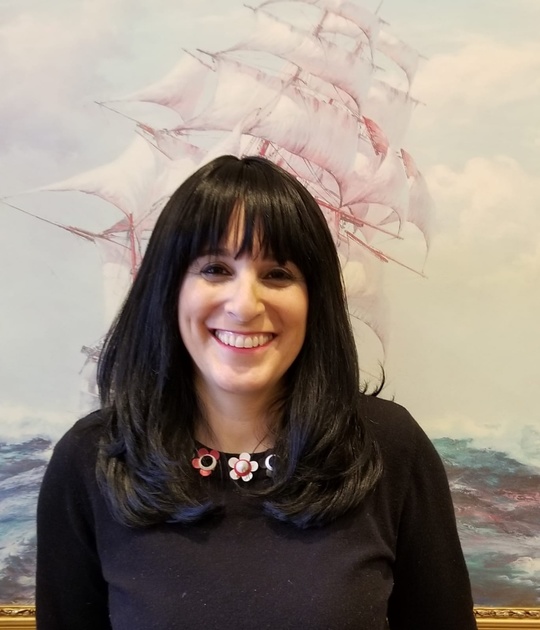
Originally written for LINKS MAGAZINE, published by LINKS, and organization that supports orphans in our community:
Dear Links, As I laugh at some of your stories and as I tear at some others, I think. I find them amusing. I also find them angering and hurtful. Every story is about how you miss your deceased parent. I don't miss my mother. Sometimes I do. When there's a simcha or on her Yahrtzeit. But otherwise, there's no sad feelings that she's not here. In a way even, I'm glad she's not. Things are calmer without her. I didn't have the greatest relationship with her. There's no yelling anymore. My father is relaxed and at peace. The whole atmosphere is just different and I like it this way. Don't get me wrong, I love my mother and I have great, fun and amazing memories with her. The things I miss about her are certain things I've done with her, special moments I've had with her. But I don't miss HER and I'm definitely not sad that she's gone. But it bothers me that everyone writes that their deceased parent was the greatest person in the world. Were they really? I'm not saying my mother was a bad person. I just wouldn't consider her the best person. And reading your stories make me think and rethink. Was my mother not amazing? Are people over exaggerating? Am I ungrateful?
I'm really not sure anymore!
Sincerely, A Confused Orphan
Dear Confused Orphan,
Sigh.
One of the hardest things about losing your parent before you are all grown up is that you do not get a chance to get to know her as one adult to another. And it may not feel hard to you, but psychologically (whaddya expect? I'm the social worker here! I gotta get psychological on you...) it is a terrible loss. One among many others.
So let us talk about this, because there are a few very solid points in your question, and you seem very mature in your thinking. I respect your courageousness in confronting your thoughts honestly even if they do not fit into the mold of how you are expected to think about your parent.
-
You are not sad your mother died.
-
You do not miss her.
-
Things, and your father, are actually calmer and nicer without her around.
-
You don't think she was as great as all the other dead parents Links members seem to have had.
-
You wonder if something is wrong with you because you don't think your mother was amazing.
-
You wonder if everyone else is exaggerating their parents' amazing wonderfulness.
Before we start, I am going to delineate normal and abnormal. It sounds like your mother was a normal person who was not perfect. Abnormal is abusive. So we are going to talk about normal. While there are some great parents out there, it's pretty rare for kids to think their parents are amazing while they are in kids-hood (as in childhood).
You know how parents yell at their kids and threaten them with, “Just wait until you have a teenager!” But it is an important threat that all teenagers need to hear. And experience when they themselves grow up and marry and have children. Because it is only when you are a mother (or father) of a teenager, do you truly understand once and for all what a hard time your parent had with you; how hard a time you gave your mother.
I will confess that a week after my oldest son was married (to the most amazing, wonderfullest girl who I adore to pieces and who happens to have the most adorable kids who are my grandchildren), just as sheva brachos was over and I was a very, very, very new shvigger (mother-in-law) that whatever I said or did seemed wrong, I called my mother.
“Ma,” I bawled into the phone, “It's so hard to have sons!”
Let me mention that the majority of my children are sons and I have one lone daughter. My mother on the other hand has the majority of girls (of whom I am one) and only one son. So I was bawling about my son, insinuating that I had been such a perfect daughter all these years (ha! My mother has awful stories about me that are not fit to be published even in horror magazines!).
My mother was quiet as I bawled away, and then as I waited for her words of wisdom (and comfort and reassurance), she said (pretty unsympathetically, if you really want to know), “It's hard to have daughters too.”
My point with this little embarrassing anecdote? Is that I only began to appreciate what a perfectly horrible teen I was and what a pretty good mom I had only when my oldest son got married. My poor mother had to wait for me to realize that, to admit that, for twenty years!
In the meantime, I did what most daughters do. I promised that I would be the best mother I could be. Not like my mother who got nervous Erev Shabbos two minutes before the zman when nothing was ready (because I had spent Friday at the pizza store and library with friends), or who made me come home Motzai Shabbos from the ice cream store before ten o'clock (so controlling!), or who was suspicious of me when I said that I really, really studied for ten hours at my friend's house and could I sleep over because we didn't finish (Okay, she didn't believe me. And she had perfect reasons not to because my friend's mother probably tattled on us that we were popping popcorn and making phony calls to teachers for a coupla hours during those ten hours...oh well). You get my drift.
My poor, misunderstood mother had to wait many, many years until I had my own kids and had my own problems with 'em before she could gloat and say, “I told you so,” and then I would have to 'fess up that she was probably (most assuredly) a pretty cool mother. Which she was. When she wasn't being an impossible mother to an impossible teenager.
But joking aside, even if we are pretty good kids (like my children were), and our parents are pretty okay parents, the reality of our lives is that parents can yell and get frustrated and do the absolutely wrong thing, or not get it, or act selfishly, or be lousy cooks, or make stupid rules that don't make sense, or expect to much—or too little of us, forget our birthdays, be bored at our school performances, or some other stuff like that. And it's not okay, but it's normal.
It makes it worse if parents don't get along. Because usually the quiet parent is perceived as the right parent and the quarrelsome parent is considered the wrong one by kids living in the house with them. And sometimes, it takes growing up for a grown up kid to understand the dynamics that weren't clear as a child. Like, the mother who yelled at the father for not being home on time, was also the mother who never was late for a school performance; unlike the dad who came late to his daughter's wedding, as he did to everything his wife ever begged him to take care of.
So here's what I want to say about your mother.
She was probably a normal mother who may have dealing with stress in her life that maybe she wasn't perfect at taking care of. And did it in ways that put more stress in the house. Or made your father not-calm. And unfortunately, because she didn't have a chance to grow up all the way, and you didn't have a chance to get to know her adult to adult, you only have that not-such-great view of her in which there's some relief that she is gone.
And the sad part is that you won't know the good stuff you missed out with her because the two of you weren't ready for that part.
Now about all those other Links girls who talk about their most amazing deceased parent. Here's what it can mean:
Their parents were actually one of those amazing people. You know how people say it's the good people who die young? Sometimes it feels that way...But death also has a way of whitewashing the stuff that was not that great. Which is why you sound so level headed and mature in your question. Because you are able to verbalize the good and bad parts of your parent without guilt. And that is great.
And I am not saying those parents were not great, any more than I don't think your mother was great too.
They probably all were. In the same way most parents seem wonderful if we live long enough to appreciate them. So maybe those girls never knew their mothers all that well because they were too young when she died. Or maybe they were old enough to know their mothers as imperfectly perfect, as young adults and appreciate her deeply despite (or because) of those imperfections.
And some girls probably are exaggerating. For reasons of their own.
And some parents probably were special and out of the ordinary.
And some girls probably have these wonderful memories that are untarnished by bits of reality.
But it doesn't need to take away from your reality. Which is of a normal mother who died too young for you to get to know her with her imperfections and have an adult relationship with her that would have forgiven her many of her imperfections, and enabled you to appreciate her for what she was.
And one of the things about grief is that there is no one right way.
Missing takes many forms. Sadness too.
Don't measure your missing her, or your sadness at her absence by the words or writing of others. It's not a contest.
You sound absolutely normal. As was your mother. And so is your way of dealing with your memories and your life.
There is nothing wrong with you.
And let all those girls think their parent was perfect. They will have their own stuff to deal with when they need to address those imperfections that most assuredly exist but have been glossed over. And that's another whole part of grief. Coming to terms with a parent always viewed as perfect, but eventually life lifting that veil and making the child-turned-adult strip away that veil, that mask of perfection to see a parent who did at least one unforgivable, imperfect thing: dying.
Like I said, grief is a funny thing (funny, as in I-am-not-laughing).
And one day, I have no doubt, when you are raising your own children, you may turn to your mother (in your mind, to her picture) and say, “Hey, I miss you!”
Look me up on LINKEDIN https://www.linkedin.com/in/mindy-blumenfeld-a8067583
Check out my book THERAPY SHMERAPY, available in bookstores and through Amazon
Browse through my previously published articles on my former blog Therapy Thinks and Thoughts at frumtherapist.com/profile/MindyBlumenfeldLCSW
Read current articles in my bi-weekly column THERAPY: A SNEAK PEEK INSIDE in Binah Magazine, available on newsstands every Monday.
 Previous
Previous

